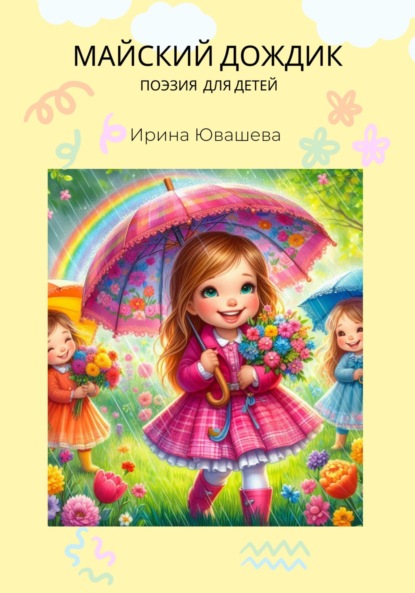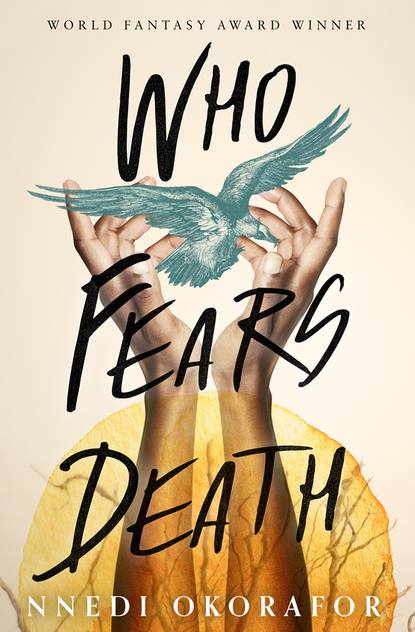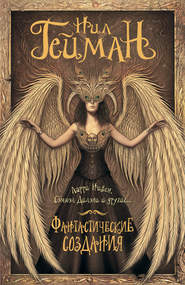По всем вопросам обращайтесь на: info@litportal.ru
(©) 2003-2024.
✖
Who Fears Death
Автор
Год написания книги
2019
Настройки чтения
Размер шрифта
Высота строк
Поля
“Yes.”
“Alone?”
Najeeba pressed her lips together.
He looked behind her and then said, “Hurry. Let me see her.” He inspected Onyesonwu, asking Najeeba what she had been eating, for she and her child weren’t malnourished. He handed her a corked vial containing a pink substance. “Give her three drops every eight hours. She’s strong, but if you don’t give this to her, she will die.”
Najeeba uncorked it and sniffed. It smelled sweet. Whatever it was, it was mixed with fresh palm tree sap. The medicine cost a third of the money she had. She gave Onyesonwu three drops. The baby sucked in the liquid and went back to sleep.
She spent the rest of her money on supplies. The dialect in the village was different, but she was still able to communicate in both Sipo and Okeke. As she frantically shopped, she started to accumulate an audience. Only determination kept her from running back into the desert right after buying the medicine. The baby needed bottles and clothes. Najeeba needed a compass and map and a new knife to cut meat. After buying a small bag of dates, she turned and found herself facing a wall of people. Mostly men, some old and some young. Most around the age of her husband. Here she was again. But this time, she was alone and the men threatening her were Okeke.
“What is it,” she quietly asked. She could feel Onyesonwu fidgeting at her back.
“Whose child is that, Mama?” a young man of about eighteen asked.
She felt Onyesonwu fidget again and suddenly she was flush with rage. “I’m not your mama!” Najeeba snapped, wishing that her voice would function.
“Is that your child, woman?” an old man asked in a voice that sounded as if he hadn’t drunk cool water in decades.
“Yes,” she said. “She’s mine! No one else’s.”
“Can’t you speak?” a man asked. He looked at the man next to him. “She moves her mouth but no sound comes out. Ani has taken her filthy tongue.”
“That baby is Nuru!” someone said.
“She’s mine,” Najeeba whispered as loudly as she could. Her vocal cords were straining and she could taste blood.
“Nuru concubine! Tffya! Go find your husband!”
“Slave!”
“Ewu carrier!”
To these people, the murder of Okekes in the West was more story than fact. She had traveled farther than she’d thought. These people didn’t want to know the truth. So they watched as mother and child moved about the market. As they watched, they stopped and talked with friends, speaking ugly words that grew uglier the more they were exchanged. They grew angrier and agitated. They finally accosted Najeeba and her Ewu child. They grew bold and self-righteous. Finally, they struck.
When the first stone hit Najeeba’s chest, she was too shocked to run. It hurt. It wasn’t a warning. When the second hit her thigh, she had flashbacks of a year ago, when she died. When instead of stones, a man’s body had slammed against her. When the third stone hit her on the cheek, she knew that if she didn’t run, her daughter would die.
She ran as she should have run when the Nurus attacked that day. Stones hit her shoulder blades, neck, and legs. She heard Onyesonwu screeching and crying. She ran until she burst from the market into the safety of the desert. Only after scaling the third sand dune did she slow down. They probably thought they’d driven her to her death. As if woman and child couldn’t survive alone in the desert.
Once safely away from Diliza, Najeeba unwrapped Onyesonwu. She gasped and sobbed. There was blood running from just above the child’s eyebrow where a stone had hit her. The baby feebly rubbed at her face, smearing the blood. Onyesonwu continued to fight as Najeeba held her tiny hands back. The wound was shallow. That night, though Onyesonwu slept well, the medicine having broken her fever, Najeeba cried and cried.
For six years, she raised Onyesonwu alone in the desert. Onyesonwu grew into a strong feisty child. She loved the sand, winds, and desert creatures. Though Najeeba could only whisper, she laughed and smiled whenever Onyesonwu shouted. When Onyesonwu shouted the words Najeeba taught her, Najeeba kissed and hugged her. This was how Onyesonwu learned to use her voice without having ever heard one.
And a lovely voice Onyesonwu had. She learned to sing by listening to the wind. She often stood facing the wide open land and sang to it. Sometimes, if she sang in the evening, she attracted owls from far away. They’d land in the sand to listen. This was the first sign Najeeba had that her daughter was not just Ewu but very special, unusual.
In that sixth year, a realization came to Najeeba: Her daughter needed other people. In her heart, Najeeba knew that whatever this child would become, she could only become it within civilization. And so she used her map and compass and the stars to take her daughter there. What place sounded more promising for her sand colored daughter than Jwahir, which meant “Home of the Golden Lady”?
According to Jwahirian legend, seven hundred years ago there lived a giant Okeke woman made of gold. Her father took her to the fattening hut and weeks later she emerged fat and beautiful. She married a rich young man and they decided to move to a large town. However, along the way, because of her immense weight (she was very fat and made of gold), she grew tired, so tired that she had to lie down.
The Golden Lady couldn’t get up, so this was where the couple had to settle. For this reason, the flattened land she left was called Jwahir and those who lived there prospered. It was built long ago by some of the first Okekes to flee the West. The ancestors of Jwahirians were of a special breed, indeed.
Najeeba prayed that she’d never have to tell her strange daughter the story of her conception. But Najeeba was a realist, too. Life was not easy.
I could have killed someone after my mother told me this story.
“I’m sorry,” my mother said. “You’re so young. But I promised myself that the minute anything began happening to you, I would tell you this. Knowing may be of some use to you. What happened to you today … in that tree … it’s just the beginning, I think.”
I was shaking and sweating. My throat felt raw as I spoke. “I … I remember that first day,” I said, rubbing the sweat from my brow. “You chose that spot in the market to sell some cactus candy.” I paused, frowning as it came back to me. “And that bread seller forced us to move. He shouted at you. And he looked at me like …” I touched and pressed the tiny scar on my forehead. I’m going to burn my copy of the Great Book, I thought. It’s the cause of all this. I wanted to drop to my knees and beg Ani to burn the West to the ground.
I knew a little about sex. I was even a little curious about it … well, maybe more suspicious than curious. But I didn’t know about this—sex as violence, violence that produced children … produced me, that happened to my mother. I stifled an urge to vomit, and then an urge to tear at my skin. I wanted to hug my mother but at the same time I didn’t want to touch her. I was poison. I had no right. I couldn’t quite bring myself to grasp what that … man, that monster, had done to her. Not at eleven years old.
The man in the photo, the only man I’d ever seen for the first six years of my life, wasn’t my father. He wasn’t even a good person. Betraying bastard, I thought, tears stinging my eyes. If I ever find you, I’ll cut off your penis. I shuddered, thinking how I wanted to do worse to the man who’d raped my mother.
Up to this point, I’d thought I was Noah. Noahs had two Okeke parents, yet they were the color of sand. I’d ignored the fact that I didn’t have the usual red eyes and sensitivity to sunshine. And that aside from their skin color, Noahs basically looked Okeke. I ignored the fact that other Noahs had no problem making friends with “normal looking” children. They weren’t outcast as I was. And Noahs looked at me with the same fear and disgust as Okekes of a darker shade. Even to them, I was other. Why hadn’t my mother burned that picture of her husband Idris? He’d betrayed her to protect his stupid honor. She’d told me he died … he should have died—been KILLED—violently!
“Does Papa know?” I hated the sound of my voice. When I sing, I wondered, whose voice is she hearing? My biological father could also sing sweetly.
“Yes.”
Papa knew from the moment he saw me, I realized. Everyone knew but me.
“Ewu,” I said slowly. “This is what it means?” I’d never asked.
“Born of pain,” she said. “People believe the Ewu-born eventually become violent. They think that an act of violence can only beget more violence. I know this isn’t true, as you should.”
I looked at my mother. She seemed to know so much. “Mama,” I said. “Has anything like what happened to me in the tree ever happened to you?”
“My dear, you think too hard,” was all she said. “Come here.” She stood up and wrapped me in her arms. We cried and sobbed and wept and bled tears. But when we were finished, all we could do was continue living.
Chapter 4 (#ulink_24c540a0-10bb-5742-bb66-114f13cc03c4)
Eleventh Year Rite (#ulink_24c540a0-10bb-5742-bb66-114f13cc03c4)
YES, THE ELEVENTH YEAR OF MY LIFE WAS ROUGH.
My body developed early, so by this time I had breasts, my monthlies, and a womanly figure. I also had to deal with stupid leering and grabbing by both men and boys. Then came that rainy day I mysteriously ended up naked in the iroko tree and my mother being so shaken that she felt it time to tell me the repulsive truth of my origins. A week later came the time for my Eleventh Rite. Life rarely let up for me.
The Eleventh Rite is a two thousand-year-old-tradition held on the first day of rainy season. It involves the year’s eleven-year-old girls. My mother felt the practice was primitive and useless. She didn’t want me to have anything to do with it. In her village, the practice of the Eleventh Rite had been banned years before she was born. So I grew up sure that all the circumcising would happen to the other girls, girls born in Jwahir.
After a girl goes through her Eleventh Rite, she’s worthy of being spoken to as an adult. Boys don’t get this privilege until they’re thirteen. So the ages between eleven and sixteen are happiest for a girl because she’s both child and adult. Information about the rite wasn’t withheld. There were plenty of books about the process in the school’s book house. Still, no one was required or encouraged to read them.
So us girls knew that a piece of flesh was cut from between our legs and that circumcision didn’t literally change who we were or make us better people. But we didn’t know what that piece of flesh did. And because it was an old practice, no one really remembered why it was done. So the tradition was accepted, anticipated, and performed.
I didn’t want to do it. No numbing medicine was used. That was part of the ritual. I had seen two freshly circumcised girls the previous year and I remembered how they walked. And I didn’t like the idea of cutting off a part of my body. I didn’t even like cutting my hair, thus my long braids. And I certainly wasn’t one to do anything for the sake of tradition. I didn’t come from that kind of background.
But as I sat on the floor staring into space, I knew something had changed in me last week when I ended up in that tree. Whatever it was caused a slight shake to my step that only I noticed. I’d heard more from my mother than the story of my conception. She’d said nothing about the hope she had in me. The hope that I would avenge her suffering. She hadn’t been detailed about the rape, either. All of this was between her words.
I had many questions that couldn’t be answered. But when it came to my Eleventh Year Rite, I knew what I had to do. That year there were only four of us who were eleven years old and girls. There were fifteen boys. The three girls in my group would no doubt tell everyone how I wasn’t present at the rite. In Jwahir, to be uncircumcised past eleven brought bad luck and shame to your family. No one cared if you weren’t born in Jwahir. You, the girl growing up in Jwahir, were expected to have it done.






